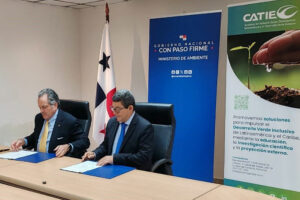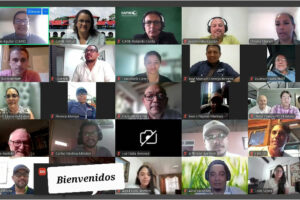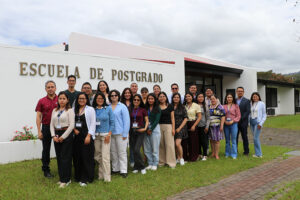Fostering an Entrepreneurial Spirit and Sustainable Nature-Based Businesses in Latin America
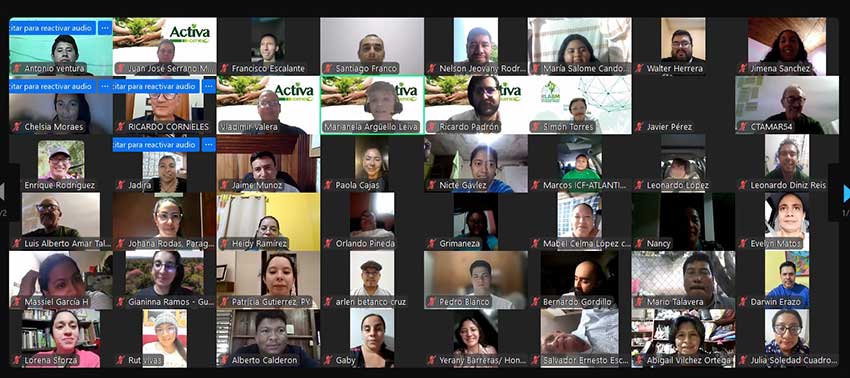
Thanks to the support of the Government of Canada and the Latin American Model Forest Network (RLABM), 174 people from 19 countries in Latin America and the Caribbean received training from professionals at the Innovation and Entrepreneurship Lab: ACTIVA-CATIE
With the aim of strengthening entrepreneurial technical skills and capabilities to develop innovative and sustainable nature-based initiatives, the virtual course Innovative Tools for Sustainable Nature-Based Businesses was held over an eight-week period.
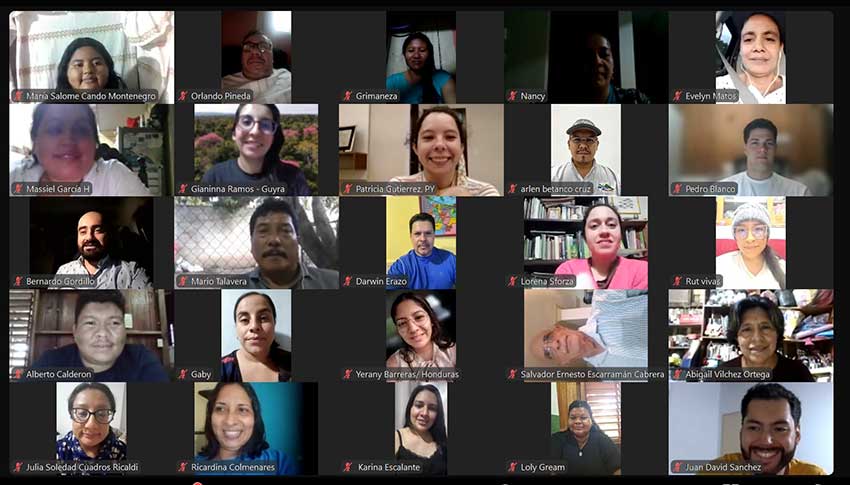
During this time, 174 participants from 19 countries across Latin America and the Caribbean successfully completed the 16 virtual sessions delivered by specialists from ACTIVA-CATIE, part of the Forests and Biodiversity in Productive Landscapes Unit at CATIE (Tropical Agricultural Research and Higher Education Center).
One of the most notable aspects was the participation of women, who made up 57% of the total attendees. Overall, the countries with the largest number of participants were: Peru with 63, Guatemala with 29, Honduras with 26, Costa Rica with 20, and Ecuador with 16—showcasing a rich diversity of origins and experiences.
“These teaching-learning spaces allow us, as a team, not only to share our knowledge, tools, and ideas, but also to grow alongside the participants, encouraging exchange and active engagement in each session,” said Vladimir Valera, director of ACTIVA-CATIE.
The Teaching Team and Methodology
In addition to Vladimir Valera, the course was taught by Ricardo Padrón, Juan José Serrano, and Marianela Argüello, with support from consultant Karen Aguilar. They used an andragogical methodology involving case studies, online surveys, videos, and other tools that enabled participants to gain knowledge on customer-centered design, value proposition canvas, cash flow, business valuation methods, the sustainable value canvas, the ACTIVA-CATIE sustainable business model canvas, and digital marketing, among other topics.
Together, they developed the following four thematic modules:
- Entrepreneurship
- Strategy and Sustainable Business Models
- Basics of Accounting and Finance for Sustainable Businesses
- Strategic Digital Communication for Sustainable Businesses
Additionally, throughout the course, valuable logistical support was provided by Simón Torres, technical assistant of the RLABM. He was responsible for maintaining direct contact with participants, sharing reading materials and videos, webinar links, and other resources—efforts that were highly appreciated and clearly distinguished this course from other virtual offerings.
Fernando Carrera, coordinator of the RLABM, has been a key driver of this kind of initiative, aiming to provide people connected with Model Forests—as well as other key territorial stakeholders—access to continuous training and knowledge updates on essential topics for sustainable development.
Testimonies that Inspire
During the final session of the course, a feedback survey was conducted to gather impressions and identify opportunities for improvement. Responses showed high levels of satisfaction and appreciation for the knowledge shared.
“It’s remarkable how comprehensively the various topics were developed. Personally, I found it to be an excellent team effort,” commented Mario Talavera.
“From Bolivia, thank you very much for this opportunity to strengthen my knowledge and to be able to share what I’ve learned with those working on nature protection and conservation,” shared Arcila Romero.
In addition, many participants expressed their gratitude to the Government of Canada, CATIE, the RLABM, and ACTIVA for the opportunity to continue their education.
About RLABM and ACTIVA-CATIE
The Latin American Model Forest Network" with an honorable mention. (RLABM) is headquartered in CATIE’s Climate Action Unit. It is a voluntary alliance of Model Forests supported by government representatives from each member country and is affiliated with the Secretariat of the International Model Forest Network (IMFN).
RLABM promotes participatory good governance of natural resources, linking territories to foster sustainable production initiatives and forest conservation efforts in member countries.
Meanwhile, the Innovation and Entrepreneurship Lab: ACTIVA-CATIE, part of CATIE’s Forests and Biodiversity in Productive Landscapes Unit, supports rural development by fostering entrepreneurship, innovation, decarbonization, and biodiversity conservation across Latin America and the Caribbean.
ACTIVA is also an accredited agency of Costa Rica’s Development Banking System (SBD). Through its work, it facilitates networking among entrepreneurship ecosystem actors by mobilizing resources, identifying and supporting new ventures, offering training, and granting non-reimbursable seed capital, among other initiatives.
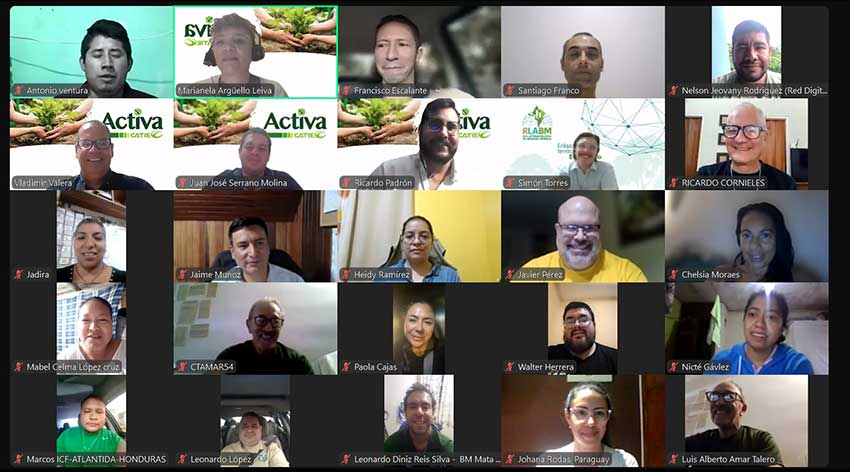
More information:
Vladimir Valera
Director
ACTIVA-CATIE
Forests and Biodiversity in Productive Landscapes Unit (UBBPP)
CATIE
Vladimir.valera@catie.ac.cr
Fernando Carrera
Coordinator
Latin American Model Forest Network" with an honorable mention.
Climate Action Unit
CATIE
fcarrera@catie.ac.cr
Written by:
Marianela Argüello L.
Education and Communication Specialist
ACTIVA-CATIE
Forests and Biodiversity in Productive Landscapes Unit (UBBPP)
CATIE
marguello@catie.ac.cr

